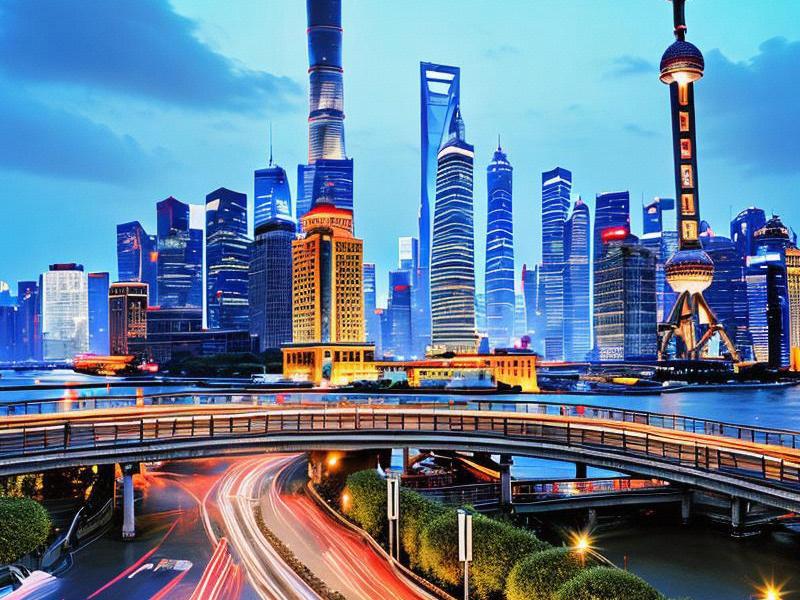This article delves into the multifaceted character of Shanghai, exploring its rapid transformation from a historic port city to a global financial hub. It examines the city's economic prowess, cultural vibrancy, and innovative spirit, highlighting how Shanghai continues to shape the future of China and the world.

Shanghai, often referred to as the "Pearl of the Orient," stands as a beacon of modernity and progress in China. This dynamic metropolis, with its stunning skyline, bustling streets, and rich cultural heritage, is not only a symbol of China's economic rise but also a key player on the global stage.
Nestled along the eastern coast of China, Shanghai has long been a gateway for international trade and cultural exchange. Its strategic location at the mouth of the Yangtze River has made it a vital port city for centuries. Today, Shanghai is home to the world's busiest container port, handling millions of tons of cargo annually and connecting China to markets around the globe.
The economic prowess of Shanghai is truly remarkable. As one of China's four municipalities directly under the central government, Shanghai enjoys a high degree of autonomy and has been at the forefront of the country's economic reforms. The city is a major center for finance, trade, shipping, and manufacturing, attracting businesses and investors from around the world.
The Shanghai Stock Exchange, one of the largest in Asia, is a testament to the city's financial might. It plays a crucial role in facilitating capital raising and investment for Chinese companies, both domestic and international. The city's Pudong district, in particular, has emerged as a global financial hub, with its iconic skyline featuring the Oriental Pearl Tower, the Jin Mao Tower, and the Shanghai Tower.
Beyond its economic achievements, Shanghai is a city of cultural fusion. It is a place where the old and the new coexist harmoniously, creating a unique urban tapestry. The Bund, a historic waterfront area, showcases the city's colonial past with its charming European-style buildings. In contrast, the futuristic skyline of Lujiazui, home to the aforementioned skyscrapers, represents the city's modern face.
上海龙凤419足疗按摩
Shanghai's cultural scene is as vibrant as its economy. The city is known for its art galleries, theaters, and music venues, which host a wide range of performances and exhibitions. The Shanghai International Film Festival, one of the oldest and most prestigious film festivals in Asia, attracts filmmakers and cinephiles from around the world.
The city's culinary scene is another highlight, offering a delightful mix of traditional Shanghainese cuisine and international flavors. From the famous xiaolongbao (soup dumplings) to the trendy rooftop bars, Shanghai's dining experiences are as diverse as its population.
Shanghai's innovative spirit is evident in its embrace of technology and sustainability. The city has been at the forefront of China's digital transformation, with its residents leading the way in mobile payments, e-commerce, and the sharing economy. Companies like Alibaba, Tencent, and Huawei have a significant presence in Shanghai, driving innovation and entrepreneurship.
Sustainability is also a key focus for the city. Shanghai has implemented various initiatives to reduce pollution, promote green energy, and improve urban living conditions. The city's extensive public transportation network, including the world's first maglev train, is a model of efficiency and environmental consciousness.
上海龙凤419社区
Education is another area where Shanghai excels. The city is home to some of the best universities in China, including Fudan University and Tongji University, which attract students from around the world. These institutions are at the forefront of research and innovation, contributing to the city's intellectual capital.
Shanghai's role in global affairs is also noteworthy. As a member of the World Expo Organizing Committee, the city successfully hosted the 2010 World Expo, attracting millions of visitors and showcasing its ability to organize large-scale international events. The Expo's theme, "Better City, Better Life," highlighted Shanghai's commitment to urban development and sustainability.
The city's leadership in global governance is exemplified by its participation in international organizations such as the United Nations and the World Trade Organization. Shanghai's contributions to global economic governance and cooperation are crucial in addressing global challenges such as climate change, trade, and development.
However, Shanghai's rapid growth has not been without challenges. The city faces issues such as housing shortages, traffic congestion, and environmental concerns. The government has implemented various measures to address these challenges, including the development of satellite cities and the promotion of public transportation.
419上海龙凤网
Despite these challenges, Shanghai remains a city of opportunity and inspiration. Its residents are known for their entrepreneurial spirit, adaptability, and openness to the world. The city's ability to blend tradition with modernity, and its commitment to innovation and sustainability, make it a model for other cities around the world.
Looking ahead, Shanghai's future is bright. The city is poised to play an even greater role in China's development and global affairs. With its strong economic foundation, vibrant culture, and innovative spirit, Shanghai is well-positioned to shape the future of China and the world.
In conclusion, Shanghai is a city that embodies the best of China's aspirations and achievements. It is a dynamic metropolis that continues to evolve and adapt to the changing world. As we look at Shanghai, we see not just a city, but a symbol of progress, innovation, and cultural fusion that will undoubtedly leave a lasting impact on the world.